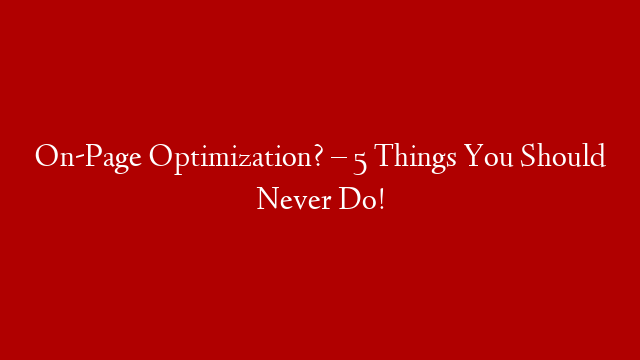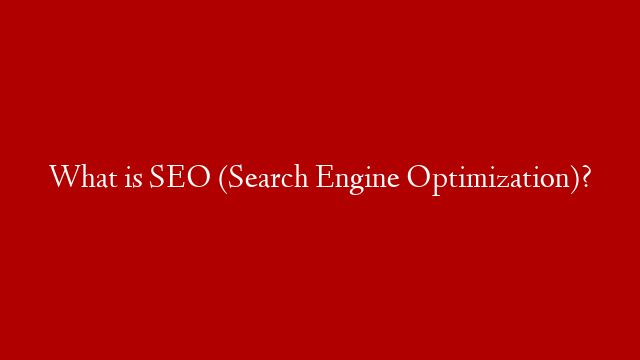If you want to rank well on search engines, optimizing your content for your targeted keywords is a very important exercise. Many profound words have been written about how to undertake this process. This article is inspired by common mistakes people make in their enthusiastic dedication towards the on-page optimization process!
Here’s what you should never do while undertaking on-page optimization:
1) Over-stuff Your Content with Keywords!
In an enthusiastic pursuit for high search-engine rankings, many people try to stuff as many keywords as possible in their website’s content, as often as possible. Your number one objective should be to add value to your reader’s experience. Search engines want you to do this too. So, over-stuffing keywords will neither get you high-rankings, nor keep readers on your page long enough to make purchases!
2) Use Common Misspellings of Commonly Misspelled Words!
Using common misspellings in your content may seem like excellent SEO-strategy to you, but it only spells disaster for your overall credibility! However, there is light behind the proverbial rainbow – Put all possible common misspellings that are relevant to your business in your list of Keyword Meta Tags – That way, when misspellers missplell, your content will be part of the search-engine rat-race, without great spellers saying “There’s no word like ‘misspellers’ OR ‘missplell’!
Note: It is acceptable and often prudent to include spelling variations of words. If you are in the business of selling art-supplies, for example, and want to sell across the globe, do consider including ‘colors’ as well as ‘colours’, the US and UK variants.
3) Forget to Optimize Meta Tags, H1-6 Tags and Image Alt Tags!
People new to the concept of SEO (Search Engine Optimization) tend to be unaware of the importance of Meta Tags like Title Tags, Description Tags and Keyword Tags, Headings and sub-headings, as well as Alt Tags for the images on your website. All these are very important because search engines consider them as a determinant of what your website is truly about. Including targeted keywords in these tags should be an important part of your on-page-optimization strategy.
4) Optimize Multiple Pages for the Same Keywords!
Optimizing multiple pages on your website for the same keywords creates competition among the pages. This is not at all desirable. Ideally, you should group similar keywords together, and target not more than 4 or 5 keywords per page.
5) Forget to Link Internal Pages on Your Website or Put Too Many Internal Links!
When pages on a website are linked to each other, it tells search engines like Google that there is a credible common-thread running through. Internal links should not be overdone, however, because they tend to distract readers from the call-for-action!
Besides these basic Dos and Don’ts, there’s actually a lot that goes into optimization for search engines. In fact, search engines are constantly changing their algorithms, in order to stay ahead of website owners and developers, in the SEO game! It’s really best to hire experts to come up with properly optimized content for your website.


